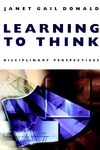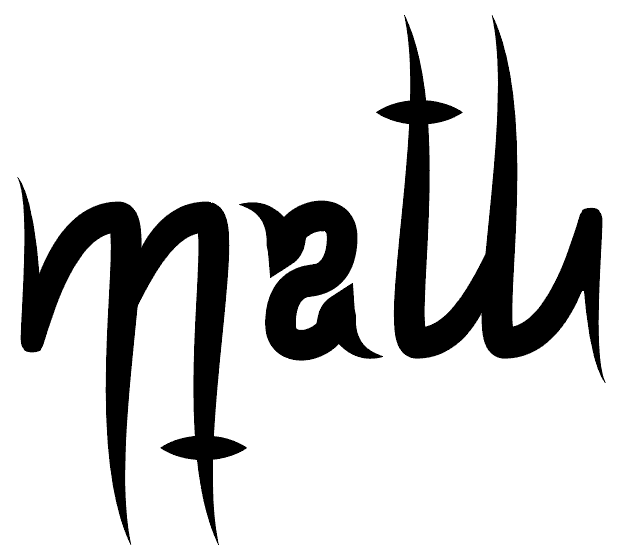One of the key aspects of the TPCK framework is the manner in which disciplinary knowledge interacts with pedagogy and technology. Till this date I did not have an adequate way of discussing how disciplinary knowledge and pedagogy interact, that is until I came across Janet Donald’s book Learning to Think: Disciplinary Perspectives.
 Discipline is often used to describe a “set of system of rules and regulations” and this definition plays out differently in different contexts. For instance, in the military sense of the word, discipline is “behavior in accord with rules of conduct; behavior and order maintained by training and control” and the other in the educational sense of the term, discipline is a “a branch of instruction or learning.” Gardner has argued that latter form of disciplinary thinking is maybe the greatest invention of mankind, and the primary responsibility given to schools. It is no surprise that our interest is in the latter sense of the word.
Discipline is often used to describe a “set of system of rules and regulations” and this definition plays out differently in different contexts. For instance, in the military sense of the word, discipline is “behavior in accord with rules of conduct; behavior and order maintained by training and control” and the other in the educational sense of the term, discipline is a “a branch of instruction or learning.” Gardner has argued that latter form of disciplinary thinking is maybe the greatest invention of mankind, and the primary responsibility given to schools. It is no surprise that our interest is in the latter sense of the word.
According to Gardner, disciplines provide us with Knowledge (Facts, concepts & relationships); Methods (Knowledge creation & validation processes); Purposes (Reasons why the discipline exists); and finally Forms of representation (Genres & symbol systems). The key question for us as educators is how disciplines differ from each other and whether these differences matter to teaching and learning. For instance, it can be argued that all disciplines can or should be taught through the same instructional strategies. So in that sense, mathematics can be taught using the same instructional strategies that we use to teach architecture, or music. So even if disciplines differ from each other, this is not a difference that makes a difference. A contrary position is that different disciplines need to be taught differently, i.e. this is a difference that makes a difference!
Clearly this is an empirical question and one that Donald seeks to answer, and answer it does, clearly and emphatically. And she does this both by identifying what is common to all disciplines and how they differ.
Summarizing over 25 years of research, Donald offers six fundamental, general thinking processes of expert and student thinking in different disciplines. These six processes describes what changes as students learn and think in specific disciplinary contexts. They are:
– Description: of context, conditions, facts, functions, assumptions, and goals
– Selection: of relevant information and critical elements
– Representation: organizing, illustrating, and modifying elements and relations
– Inference: drawing conclusions, forming propositions
– Synthesis: composing wholes from parts, filling gaps, developing course of action
– Verification: confirming accuracy and results, judging validity, using feedback
Though these six processes apply to all disciplines, Donald shows that different disciplines emphasize certain processes and under-emphasize others. For instance problem description in literature would be very different from that in engineering, as would the nature of inference, synthesis and verification. Verification in engineering would be pragmatic (does it work?), while that in literature could be a search for interpretive coherence. One can make similar arguments for how these six processes play out differentially in other disciplines as well.
So what does this mean for instruction, or as we have been phrasing this, does this difference make a difference? Donald spends and entire chapter arguing against content-neutral, simplistic one-size-fits-all educational strategies that would apply equally well to all disciplines. As Pintrich* says in his review of the book:
Donald makes the case that instructional improvement must develop out of tasks, knowledge, and ways of thinking that characterize each discipline or field. This makes instructional improvement a much harder task, as it is not as simple as just picking up a few new instructional techniques at a faculty development workshop and then using them in class. Instructional improvement involves thinking clearly and deeply about the nature of the discipline and the desired knowledge and thinking processes and then designing instruction to facilitate and encourage the use of the knowledge and processes… There is no one “royal” road or a single developmental pathway that all instructors or all students must follow in the development of student thinking.
This lack of a single “royal road” is exactly the argument that Matt and I have been making in our TPCK related work. The only difference is that we include technology as being part of the mix and this further complicates both content and pedagogy – and the relationships between them.
* Pintrich, P. R. (2004). Understanding the Development of Student Thinking in the College Classroom. [Review of the book Learning to think: Disciplinary Perspective]. The Journal of Higher Education.


I wish I did. The problem I am facing at this time is that I have desperately fallen behind on my blogging. Summer teaching being the main culprit. Hopefully I will be back in full force in a week’s time.
Thanks, JordyW. I have fixed the errors (I had incorrectly typed in Diamond instead of Donald in a couple of spots).
The author is Janet Gail Donald. I’ll have to check it out.
Donald, J. 2002: Learning to Think: Disciplinary Perspectives. San Francisco: Jossey-Bass. October 2006
Diamond, R. M. and Adam, B. A. (Eds.) 1995a: The disciplines speak: rewarding the scholarly, professional, and creative work of faculty. Washington: American Association for Higher Education.
Diamond, R. M. and Adam, B. A. (Eds.) 1995b: Describing the work of faculty: disciplinary perspectives, in Diamond, R. M. and Adam, B. A. (Eds.) The disciplines speak: rewarding the scholarly, professional, and creative work of faculty. Washington: American Association for Higher Education. pp. 1-14.